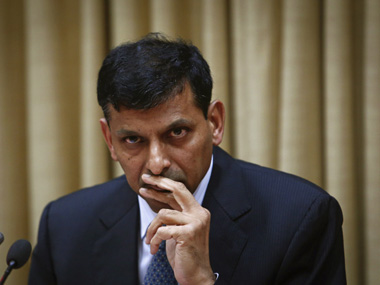The author is a policy commentator based in New Delhi. He tweets
@yatishrajawat Everything that has to be analysed about Raghuram Rajan and his departure has been done. It is not the departure of the man that is the issue, but the unfinished agenda or the challenge that this country faces which is the issue. An articulate and a contrarian as a RBI governor is a rarity but as with all other things we focus on the person more than the process. We focus on the personality and forget the system behind it. Which is why we do not build institutions but flaky heroes — who break away at the first sign of pressure. Rajan’s departure is unconventional as the man — this is the same person who criticised Manmohan Singh and his government for its failure to reform the system. A few weeks before he was appointed governor, Rajan as a speaker to celebrate 20 years of reforms, spoke disparagingly about the government’s efforts. He was not known to be politically correct then nor is he now, although as a governor he did become much more careful. He is known to be correct, and his claim to fame was he predicted the subprime crash. He wrote that banks by their nature and size become risk averse and lend to the safest borrower. As a governor was he able to diversify the lending practices of the banks and increase their lending base. As an academician, he knew all the problems and he even had a solution to a some of them. Has he been successfully in implementing those solutions, reforming the system in a way that he lectured? [caption id=“attachment_2805842” align=“alignleft” width=“380”]
File image of RBI governor Raghuram Rajan. Reuters[/caption] If Rajan was to evaluate his own performance, how will he rate himself? Did he fulfil the mandate he was given? When he looks back at his time as governor, will he see it with satisfaction or as an opportunity squandered? Much more important, is if we move away from the person and actually look at the issues and challenges facing the financial system and the economy. It would give this debate a better structure. We have a dysfunctional banking system. Not only is it saddled with bad debts and poor balance sheets, it is also unable to diversify its lending base nor give credit where it is needed most. I wrote about the
banks’ inability to lend to the MSME sector here. Rajan started the process of unbundling NPAs, created a system for delinking decision-making from banks to a committee. Will this process of pressure on promoters to repay their loans continue with the new governor or will the political and bureaucratic alliance short circuit it? To understand the process of NPA classification and redressal I would recommend compulsory reading of
Deputy Governor R Gandhi’s speech delivered in September 2015. It shows the systemic change that has been institutionalised for NPAs, but as everyone knows, it does not take long for the system to be dismantled. For the first time, promoters at all levels were worried about their loans, they were asked to divest their assets and debt-restructuring was a process, not a decision. Even large corporate houses that had taken loans for diversification were not safe. The very contours of crony capitalism were questioned. This process is not complete and it is important that the system be allowed to function. Mandarins at the Ministry of Finance, if supported by their political masters, can find a way around any system and this is the issue that has to be kept under scrutiny post-Rajan. Mandarins at the ministry did not make it easy for the current or even the past governor to function. Even though, Rajan’s predecessor was a bureaucrat and bent when he was asked to bow, he did not have an easy time. Rajan’s departure also shows that he did not want to fight the system, the bureaucrats or the politicians anymore. His resignation is clearly a sign of giving up against insurmountable odds. This is something that will surely bother him as his legacy is poorer because of it. The governor’s job is as much about politics as economics, the political establishment comes with a corporate lobby towards whcih even the bureaucratic establishment veers. It is the governor’s job to distinguish what is important for the country and what the political establishment wants it to do. To have a yes man at the governor’s post is a sure sign for disaster, because a weak individual will always bend faster than is needed and more than is required. The agenda that Rajan set has not changed our financial system, which is still not out of the woods. It will be fallacious if the establishment does not recognise this and appoint a strong governor again.
It is not the departure of Raghuram Rajan that is the issue, but the unfinished agenda or the challenge that this country faces which is the issue
Advertisement
End of Article


)

)
)
)
)
)
)
)
)



